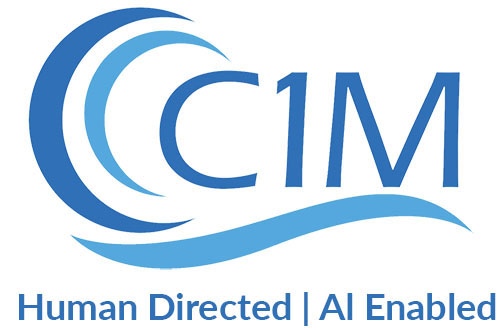
In our digital world, every business has an online reputation. That’s true whether you manage your reputation on the internet or not – it’s just not something you have complete control over. With the rise of online reviews in sites like Google, Facebook, and Yelp, your business is getting regular feedback from customers. How you deal with that feedback is part of your online reputation management strategy. And you need to have one for your business to thrive.
What is Online Reputation Management?
It’s the act of putting your best foot forward in the digital world. It’s how you work to cultivate positive reviews, counteract the damage from negative trends, and create a balanced online reputation.
If you’ve ever done a Google search for yourself or your business, you’ve gotten a look at your online reputation. Managing your online reputation means you’re taking control of what people find when they see your business online – techniques that help your audience find the right materials when they look for you.
Why Your 3rd Party Reviews are Important
As our world becomes more and more enmeshed with the digital world, your online reputation is increasingly becoming your total reputation. Think about it: where do you go first when you need to find information, directions, a product, or a service? Or when you need to find anything at all? If you’re like a massive and steadily growing segment of the US population, you start almost all those tasks on the internet.
Even for purchases made in a physical store, online information is key. For example, you’re looking to get some cupcakes for a friend’s birthday and you aren’t sure where to buy them. You will probably start by doing a web search for cupcake places near you and looking at customer reviews. You’ll rule out the places where the negative reviews say the cupcakes are dry or the customer service is unfriendly, and head to the one that has the most positive reviews. Your purchase is made the traditional way – at a storefront, in person – but everything else about your cupcake search is online.
This online information is more easily available now than it’s ever been because of one factor: smartphones. Now most of us have access to thousands of reviews in our pockets. Your audience can pull up thousands of search results in seconds.
The online reputation of your business is also important because the internet doesn’t forget. Your prospective customers can access negative reviews and press from years ago with just a scroll of the computer mouse (or a swipe of the smartphone screen). If you don’t take steps to find and deal with this negative information, it can haunt your business for years to come.
How to Manage Your Reputation
Managing your business’s online reputation should be part of your overall digital marketing strategy. After all, if you’re spending lots of time and money on your marketing efforts but fail to protect your reputation, all that will go to waste.
Reputation management starts by understanding what goes into your online reputation. It’s a mix of online customer reviews, search engine results, and your online presence.
Online Presence
Your online presence is the basis of your entire digital marketing strategy. It’s how your business is represented in the digital world. This begins with your website – make sure it’s professional and designed with the user experience in mind. It should contain testimonials from satisfied customers or customer reviews to reassure potential customers that your products or services are great.
Your online presence is also your social media profiles – how you interact with your customer digitally. Do you respond quickly and professionally to questions and reviews in the comments of your social media posts? If not you, you should. These platforms also serve as an informal set of reviews that prospects can view.
More formal review sites, like Google Reviews, Facebook business profiles, and specialized sites like Yelp and TripAdvisor are also a key part of your online presence. You should take steps to claim your business accounts on the sites that are relevant to your industry as a first step. Usually, these platforms will then let you respond to reviews from customers.
Help Prospects Find You
Search engine algorithms are pretty smart, but they can only provide content that has been created by a human. You can optimize the content you want your prospective customers to see – like your website, product descriptions, blog posts, and more. This helps them appear higher in search engine results.
How can you help prospects find the positive information you want them to see? This is a great time to learn about or invest in search engine optimization (SEO) for your website, your content strategy, and even your social channels. This will make it easier for potential customers to find you – and to help them find the content you want them to see.
Promote Your Positive Content
If you have negative content that continues to come up in search engine results, there’s not a simple way to get it removed. That’s even if the content is untrue or outdated. But what you can do is create plenty of positive and SEO-friendly content that will push that negative content further and further down the search engine results page (SERP).
Just like you can counterbalance negative search engine results with positive SEO content, you can do the same on review sites. One negative review will have a lot more power if you only have five positive reviews. But that same bad review counts for a lot less if you have 100 five-star reviews.
There are plenty of not-so-honest ways to increase your positive reviews. But review sites are getting better at weeding those fake reviews out. And consumers are becoming increasingly good at picking up on artificial content too. It’s not worth the risk to the integrity of your business to engage in any shady dealings.
Use Your Email Automation
Instead, you can use the power of email automation to encourage satisfied customers to leave you a glowing review. One particularly effective technique is sending an email automatically to everyone who has just made a purchase from your company. You ask them how likely they are to recommend your business to their friends and family on a scale from 1-10 (not at all likely to most likely).
This is known as the Net Promoter Score system. Your Promoters, or biggest fans, give you a 9-10, Neutrals give you 7-8, and anyone who is at a 6 or below is a Detractor. There are plenty of things you can do with this data, but for your online reputation management we recommend one step. Email every promoter to ask them to leave your business a review on the site of your choice. You already know they love your business – you know their review will be positive.
Leave the detractors out of this request. But don’t ignore their feedback because it could uncover a trending issue. And you’re not preventing them from leaving a negative review. You’re just not actively reminding them to do it like you are for your promoters.
Stay on Top of Reviews
To effectively manage your online reputation, you also need to respond to any negative reviews in a timely fashion. With the increasing array of online review sites and social media platforms, this is becoming a bigger and bigger task. But every day you don’t address a bad review is a day your reputation is suffering.
You can set up review notifications for review sites where you have an account, like Google My Business, or Healthgrades. Set aside time in your day or assign an employee to respond to these daily, especially the negative ones. But people may also post complaints about your company on any part of the internet. And you could miss a damaging post until it’s too late to control any damage.
The solution? Set up a Google Alert for your business name. This will let you know anytime someone mentions your business anywhere on the web. This can be a good opportunity to find positive mentions and promote those too. After all, online reputation management isn’t just about damage control. It’s about balancing your reputation too.
Get Expert Help
Managing your online reputation is a big task – but it’s a critical one for the health and growth of your business. Don’t let negative reviews or press damage the business you’ve worked hard to build. Schedule your free business review with ContentFirst.Marketing and get expert help managing your reputation as part of a strategic digital marketing plan. We’ve helped businesses like yours for years – find out what we can do for your business today.


